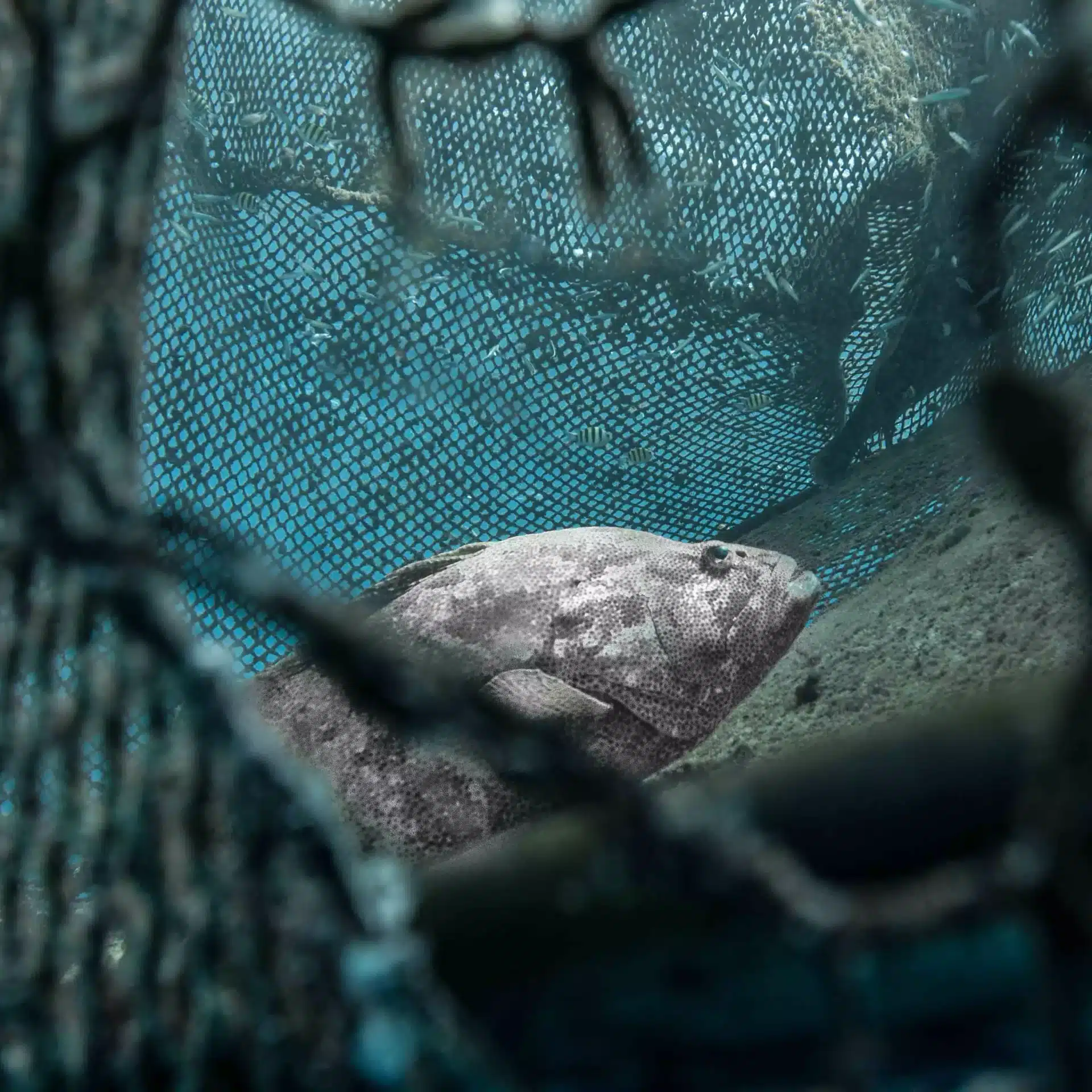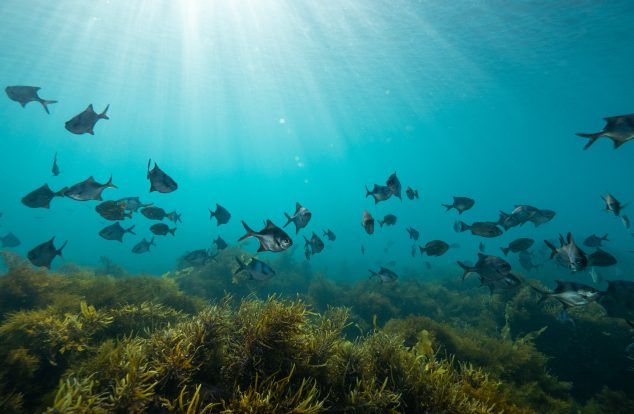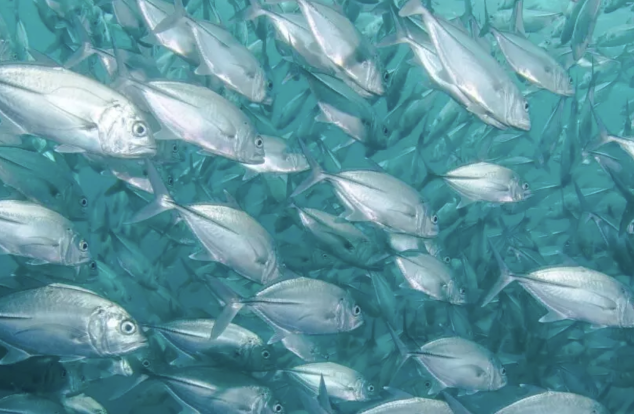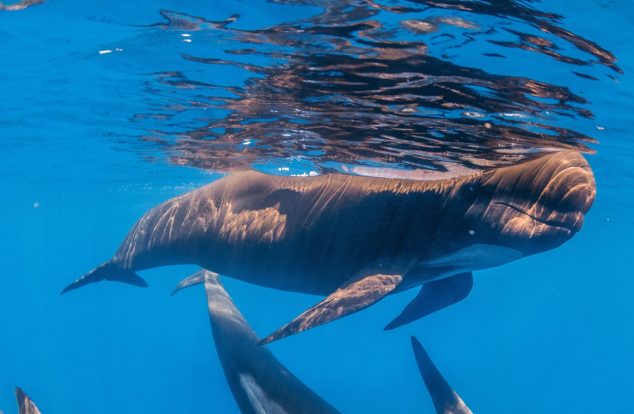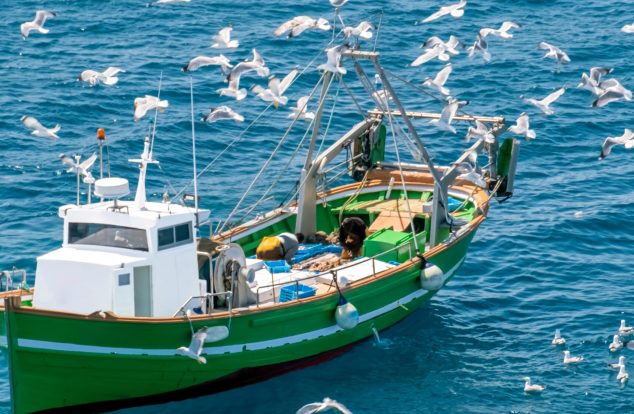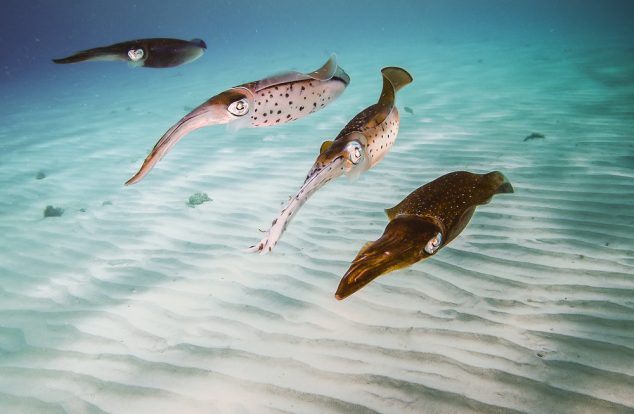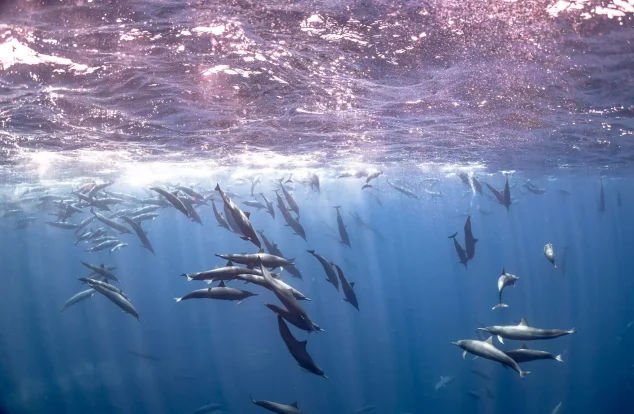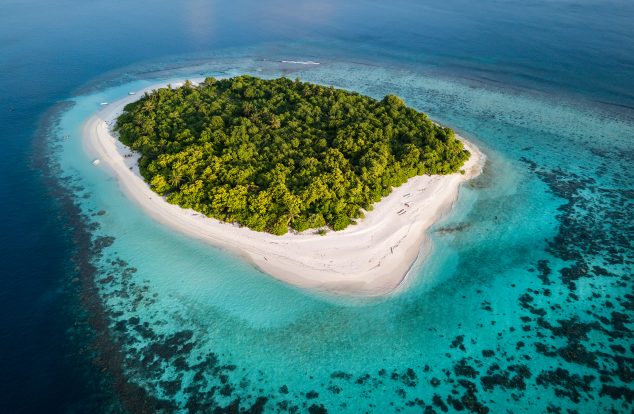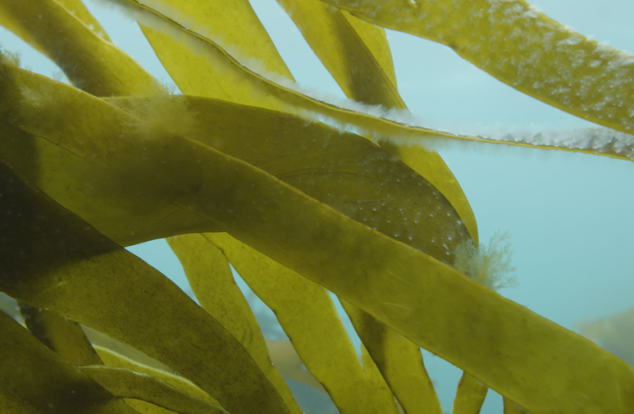Grouper in the Maldives are in trouble. Due to high demand and market prices, the Maldives grouper export fishery has escalated since the 1980s, spreading throughout the country. The most recent study in 2011 revealed a concerning situation: grouper stocks are declining and smaller sized fish are being taken. Larger fish have selectively been removed and fishers are targeting spawning aggregation sites. Recent catch data show that for the ten most commonly exploited species of groupers, 70% of individuals are taken prior to reaching sexual maturity, meaning that they had not had a chance to reproduce before being caught.
The Blue Marine Foundation has formed a partnership with the Maldivian Ministry of Fisheries and Agriculture (MOFA) and Six Senses Laamu, a beautifully sustainable, luxury resort with a passion for marine conservation. In collaboration with MOFA, BLUE has designed a project to promote a better documented and more sustainable grouper fishery in the Maldives by protecting threatened grouper spawning aggregations. Research suggests that grouper have been overfished for at least 15 years in Laamu Atoll.
In January 2016, Dr Simon Harding, BLUE’s Head of Conservation, and I conducted a scoping trip to the Maldives to plan the project. We arrived in Male, the capital, where we spent four days meeting with Ministries, NGOs, research facilities, and universities. The meetings were a resounding success, and support for the project grew day by day.
We then flew south to Six Senses resort, Laamu, where we were warmly greeted by Marteyne van Well (General Manager) and her team. Over the next ten days we introduced the project to local councils, community leaders, resort staff and grouper fishermen. Again, the level of support for the initiative was outstanding. Information on the local grouper export fishery poured out with each interview.
We met the fishermen who sell groupers to cage ‘ranchers’, who keep the live fish in floating cage systems. Entering the cages is not for the faint hearted. The large, predatory fish are stressed and hungry and one worker was recently attacked and hospitalised after he entered a cage to retrieve a dead fish. This was fresh in my mind as I dived in, camera at the ready.
The cage owner, Mohammed explained that once there is sufficient quantity to justify the cost of shipment to Male for export, the fish are shipped, anaesthetised and subsequently airfreighted to Hong Kong where they end their lives in fish tanks in the windows of restaurants. Mohammed runs a modest grouper export business, mainly for the ‘live fish trade’, and ships out approximately two and a half tonnes of fish per year. The larger fish (which fetch the best market price) are becoming more difficult to find so he also sells smaller grouper, which are exported dead and chilled. These small grouper (between 500g and 3kg) are less valuable, but there is a market for them, so he sells them.
There are several issues associated with the Maldivian grouper fishery, which have led to substantial stock decline for targeted species in heavily fished atolls.
Groupers are slow to mature and have complex social systems that provide cues for sex change. They also exhibit a high degree of site fidelity within their home ranges and to spawning aggregation sites where they are easy to capture, particularly with improvements in fishing technology, which allow for the targeting of specific spawning locations.
Due to high demand and market prices, the Maldives grouper export fishery has escalated since the 1980s, spreading throughout the country. The most recent study in 2011 revealed a concerning situation: grouper stocks are declining and smaller sized fish are being taken. Larger fish have selectively been removed and fishers are targeting spawning aggregation sites. Recent catch data show that for the ten most commonly exploited species of groupers, 70% of individuals are taken prior to reaching sexual maturity, meaning that they had not had a chance to reproduce before being caught.
We learnt that fishing techniques have evolved alongside technological advances. ‘Modern’ grouper fishing is carried out at night with torches. The divers use large hooks to pull the grouper from underwater caves and nets to trap the fish. The declining trend for live exports and the corresponding increasing level of fresh chilled exports (smaller fish) has resulted in both fishermen and exporters targeting a wider range of grouper species.
There is also the problem of fishers habitually targeting spawning aggregations (for obvious reasons, but with deleterious consequences). A recent study to identify reef fish spawning aggregations revealed that most fishers were aware of the phenomenon of spawning aggregations and were able to identify 175 sites across the Maldives. The MOFA has officially designated five spawning aggregation sites as Marine Protected Areas (MPAs). However, there is a lack of capacity to properly enforce the MPA regulations in situ.
The scoping trip exceeded our expectations, but there is much work to be done. We returned to the BLUE office in London with enough up-to-date, accurate information to produce an extensive a scoping report, which will summarise the local situation on Laamu and identify the next steps for the project.
Although it is indisputable that Maldivian grouper stocks are under pressure and some current regulations are inadequate to enable sustainable fishery management, there is still hope for these apex predators. We now plan to collect information on grouper catches that will be critical in improving the management of the fishery and help to safeguard grouper populations across the Maldives.
